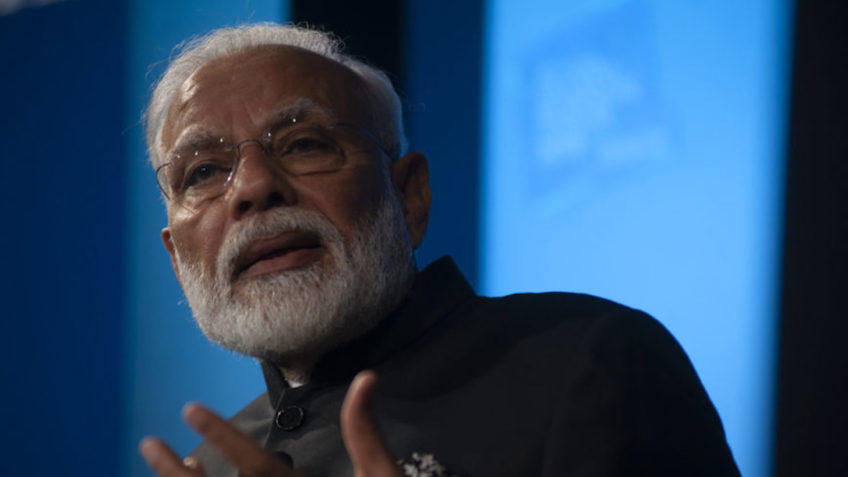
According to exit polls, the current prime minister’s coalition will take 353 to 401 of the 543 seats in the Lower House in India
India’s main exit polls claim that the political alliance led by the country’s prime minister, Narendra Modi, will win the most seats in parliament (Lok Sabha) in this year’s general elections.
According to information from Reuters, 5 major Indian surveys project that the NDA (right-wing National Democratic Alliance) will occupy 353 to 401 of the 543 available seats. With this, Modi should win the 3rd consecutive term as Indian Prime Minister. He has led the country since 2014.
The election was held over 44 days, in 7 different stages, to register the votes of 969 million people. It involved 6 national parties, 57 state parties and another 2,597 smaller parties. The process ended last Saturday (June 1, 2024) and was marked by waves of extreme heat that killed at least 58 people. The final result will be announced next Tuesday (June 4).
According to polls, only Modi’s party, the BJP (Bharatiya Janata Party), will have more than the 303 seats won in the last elections in 2019. In the country, the prime minister needs to have 272 seats to carry out his proposals more easily in parliament.
Meanwhile, the opposition alliance India (Inclusive Alliance for Indian National Development) would have a maximum of 182 seats in the Lower House.
On X (formerly Twitter), the Indian Prime Minister has already celebrated the victory anticipated by the polls. He said that “the people of India voted in record numbers to re-elect the NDA government”. He added that the “opportunist” India failed “please voters”.
The opposition, however, rejects the exit polls carried out in the country. He says that Indian news channels are allied with the prime minister’s speech and accuses the research of being unscientific.
POPULARITY OF MODI
Owner of a significant GDP (Gross Domestic Product) growth rate and a trillion-dollar economy –a 5th largest economy in the world–India’s social backwardness still draws attention.
According to the UNDP (United Nations Development Program), the country’s HDI (Human Development Index) is considered average, scoring 0.644. The same body reported that life expectancy at birth in India is 67 years. Brazil’s HDI, for example, is 0.760, while life expectancy is 76.2 years.
Despite the negative markers, Modi is very popular in the country for his strong Hindu speech. BJP leaders are marked by a religious discourse and are accused of persecuting Islamic groups –part of the population that is often marginalized in the overwhelmingly Hindu majority country. One of the campaign’s main advertisements was the construction of a Hindu temple on top of the old Babri mosque, in the city of Ayodhya.
The country has grown economically by investing in hospital, space and cutting-edge technology hubs. Furthermore, service sectors have significant external investment. Modi has promised that India will be a developed country by 2047, the centenary of independence from the British Empire.
Source: https://www.poder360.com.br/internacional/modi-amplia-poder-e-tera-ampla-maioria-no-parlamento-indiano/

